Science Illustrated delivers natural science, break through discoveries and an understanding of the world for the entire family. Packed with stunning photography and in-depth editorial it’s a visually spectacular gateway to the world looking into the beginning of life to distant objects in the universe.
Science Illustrated
Poo pretender: prey is fooled by fake faeces
Controlled burn: lunar craft protected by 5m heat shield
New robot to search for life on Saturn’s Moon • A one-kilometer-thick ice shell envelops one of Saturn’s moons where scientists believe traces of life may exist. A robot snake might weave its way through the ice to find answers.
Could the deep ocean hold life? • An underground ocean on Enceladus could be heated by a porous core, creating life-supporting zones within the icy moon.
Researchers find an anxiety gene • By pinpointing a gene in the brain that influences anxiety, researchers have identified a potential weapon in treatments for this disorder.
Scientists decipher brain signals behind chronic pain • The discovery offers hope for new treatments for people suffering permanent crippling pain.
Global warming makes flying more turbulent • A flight across the Atlantic has become more choppy over the past few decades because of global warming, according to a new study.
Half of all animal species now in decline • Around half of the planet’s species are losing ground. One group is particularly endangered, warn scientists who consider the situation “alarming”.
Scientists transmit energy wirelessly from space to Earth • For decades, scientists have considered whether solar cells could be installed above Earth’s atmosphere. Now Caltech scientists have solved a key problem to bring this dream closer.
How solar energy will be transmitted to Earth • A solar park would orbit high above the atmosphere where solar cells would convert solar energy into power, subsequently converted into microwaves and sent towards Earth.
Some 10% of Stone Age people may have had non-binary characteristics • German scientists have examined European graves dating thousands of years back in time and may have gained new insight into gender perception in the Stone and Bronze Ages.
Genetic trick protects the world’s oldest mammal • Scientists have learned more about whales’ special ability to repair their damaged DNA.
Cars, chlamydia and canines are killing koalas • Koalas in South-East Queensland, as elsewhere, are losing numbers dramatically. A new study aims to pinpoint why, and how to help.
Fluorescence found to be widespread • Widespread fluorescence in different animal types indicates this may be a long-held ancestral trait.
Parasites may create pack leaders • Risky behaviour, dominance and territorial expansion have all been connected to a small cat-borne parasite that has been infecting wolves in Yellowstone National Park, USA.
What’s the best way to keep summer beers cold? • Beer can quickly become lukewarm during summer. Happily science can help prevent such a potentially tragic event.
Who owns the Moon?
Does having children make their parents age more quickly? • “I feel 10 years older than when I had a baby two years ago. Is this utter nonsense, or do parents’ bodies age more quickly?”
THE DUEL · Manual dishwashing vs. dishwasher – which is better? • “I hate doing the dishes, and would love a dishwasher, but my wife says that manual washing is the cheapest and most environmentally-friendly solution. Is she right?”
Do kangaroos form longterm relationships that last years?
Why is the line always longer outside the ladies’ room? • “At concerts and other public events, there is always a longer line for the ladies’ toilets than for the men’s. Why...
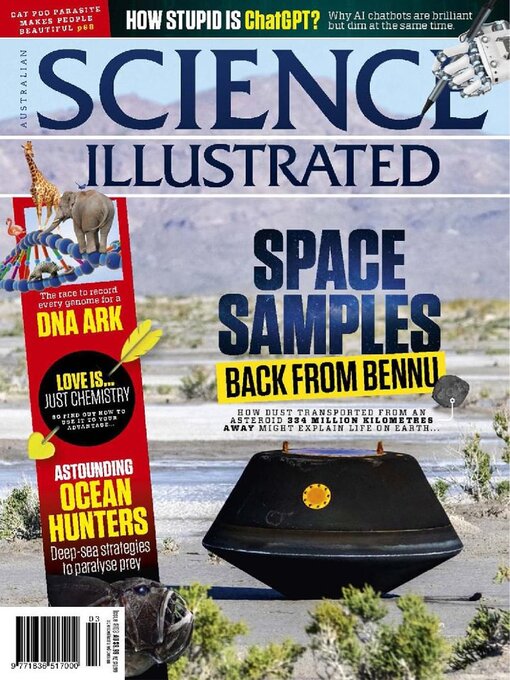
 Issue 106
Issue 106
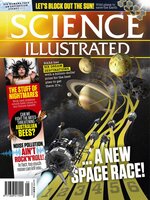 Issue 105
Issue 105
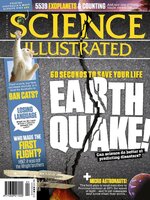 Issue 104
Issue 104
 Issue 103
Issue 103
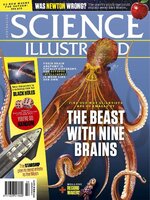 Issue 102
Issue 102
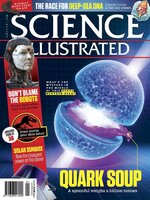 Issue 101
Issue 101
 Issue 100
Issue 100
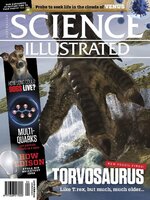 Issue 99
Issue 99
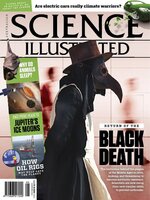 Issue 98
Issue 98
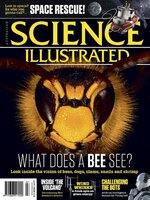 Issue 97
Issue 97
 Issue 96
Issue 96
 Issue 95
Issue 95
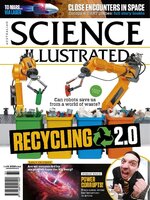 Issue 94
Issue 94
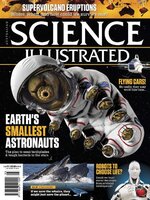 Issue 93
Issue 93
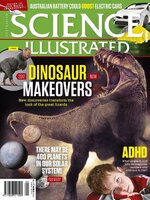 Issue 92
Issue 92
 Issue 91
Issue 91
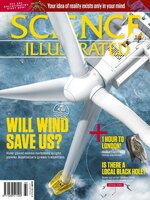 Issue 90
Issue 90
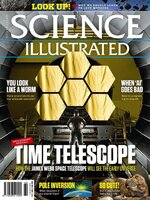 Issue 89
Issue 89
 Issue 88
Issue 88
 Issue 87
Issue 87
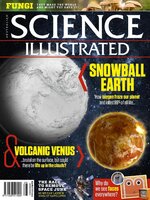 Issue 86
Issue 86
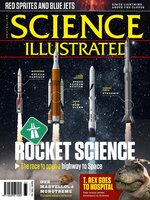 Issue 85
Issue 85
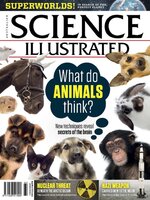 Issue 84
Issue 84
 Issue 83
Issue 83
